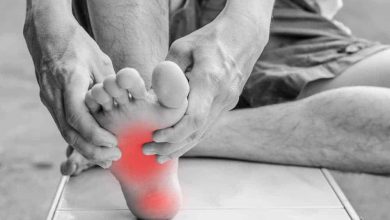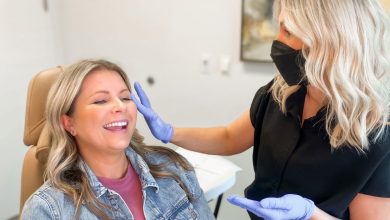Neglecting Denture Cleansing Can Harm Overall Health

Which part of the human body is the dirtiest? You might be surprised to learn that there are more bacteria in the mouth than people on Earth. These bacteria can not only lead to oral diseases but also cause systemic diseases. A recent study led by scholars from Tohoku University in Japan has shown that elderly individuals who use dentures and do not clean them daily may face a 30% increased risk of developing pneumonia. Good oral care helps prevent pneumonia.
Bacteria Thrive on Uncleaned Dentures
According to Professional China Dental Lab, numerous previous studies have confirmed the presence of a large number of bacteria in the oral cavity. Some Gram-negative anaerobic bacilli, such as Porphyromonas gingivalis, Fusobacterium nucleatum, and Actinobacillus actinomycetemcomitans, are highly pathogenic and virulent. They can enter the lungs through saliva, potentially causing fatal pneumonia in the elderly. Another route is through the bloodstream. Generally, in a healthy oral environment, the ratio of pathogenic strains is relatively low. However, in the presence of local inflammation, such as periodontitis or swollen gums, the ratio of pathogenic anaerobic bacteria significantly increases. These bacteria can directly enter tissues and capillaries, traveling through the bloodstream to reach various organs, including the lungs. Chronic obstructive pulmonary disease and community-acquired pneumonia are common conditions among the elderly.
The surface of dentures can also have bacterial adhesion, and long-term neglect of cleaning can lead to the deposition and calcification of dental calculus, which contains a large number of bacteria and toxins produced by these bacteria.
Oral Health is Closely Linked to Overall Health
In fact, there is a close correlation between oral health and overall health. Reliable China Dental Laboratory points out that it is now clear that periodontitis is associated with diabetes, coronary heart disease, low birth weight infants, arthritis, pancreatic diseases, and more.
For example, in pregnant women, epidemiological surveys show that about 5% of those with periodontitis may experience preterm birth or have low-birth-weight infants. Inflammatory factors can reach the uterus through the bloodstream, leading to preterm birth. Therefore, prevention and treatment of oral diseases should be done before pregnancy.
Among diabetic populations, the incidence of periodontitis is higher, and some scholars suggest that periodontitis is the sixth symptom of diabetes. On the one hand, diabetes exacerbates periodontal destruction, and on the other hand, periodontal inflammation can also affect blood sugar control. Therefore, for diabetics, controlling blood sugar within a certain range is beneficial for the treatment and control of periodontitis, and effective periodontal treatment is also conducive to blood sugar control.
How to Practice Good Oral Care? Prevention and Early Treatment
Poor dental health can lead to systemic problems. Here are some suggestions to stay away from the dangers of bacteria:
- Develop good oral hygiene habits. Rinse your mouth with water immediately after eating, and brush your teeth if conditions allow. Master correct brushing techniques. Besides using a toothbrush, the gaps between adjacent teeth also need to be cleaned with dental floss and interdental brushes, or with the aid of a water flosser. Dental floss can be carried with you at all times. Interdental brushes are mainly suitable for people with severe gum recession and obvious tooth gaps.
- Undergo regular oral examinations. “If there is pathology at the tooth root, it acts like a bacterial reservoir, easily storing many bacteria. Since the oral cavity is an integrated system, the pathogenic bacteria from untreated diseased teeth can affect other teeth.” “We often say that teeth fall out with age, but in fact, it is mostly due to periodontitis that leads to tooth loss, which is not treated in a timely manner.” Currently, the primary cause of tooth loss among adults is periodontal disease. Periodontal disease starts as gingivitis, which is reversible if treated promptly. However, once it progresses to periodontitis, causing alveolar bone destruction and resorption, it becomes irreversible. Therefore, it is best to visit a dental specialist every six months for oral examinations to detect and treat oral diseases promptly.
- Incorporate more coarse fibrous foods into your diet. Dr. Qi noted during oral examinations that some people chew on one side of their mouth, resulting in cleaner teeth on that side and poorer oral hygiene on the other. This is because food can play a certain flushing role on teeth during chewing, especially foods high in coarse fiber. Therefore, it is recommended to consume more coarse fibrous foods and fewer refined foods such as cookies and cakes. This is especially true for the elderly, who may have gum recession and poor cleaning of tooth gaps, making them more prone to gingivitis and periodontal disease complications.
- Replace missing teeth promptly with dentures. Teeth are subject to the principle of “use it or lose it.” The area where teeth are missing does not receive stimulation, and over time, the alveolar bone will gradually atrophy. Missing teeth not only affect facial support and speech function but also impair chewing function, further affecting food digestion and absorption.



